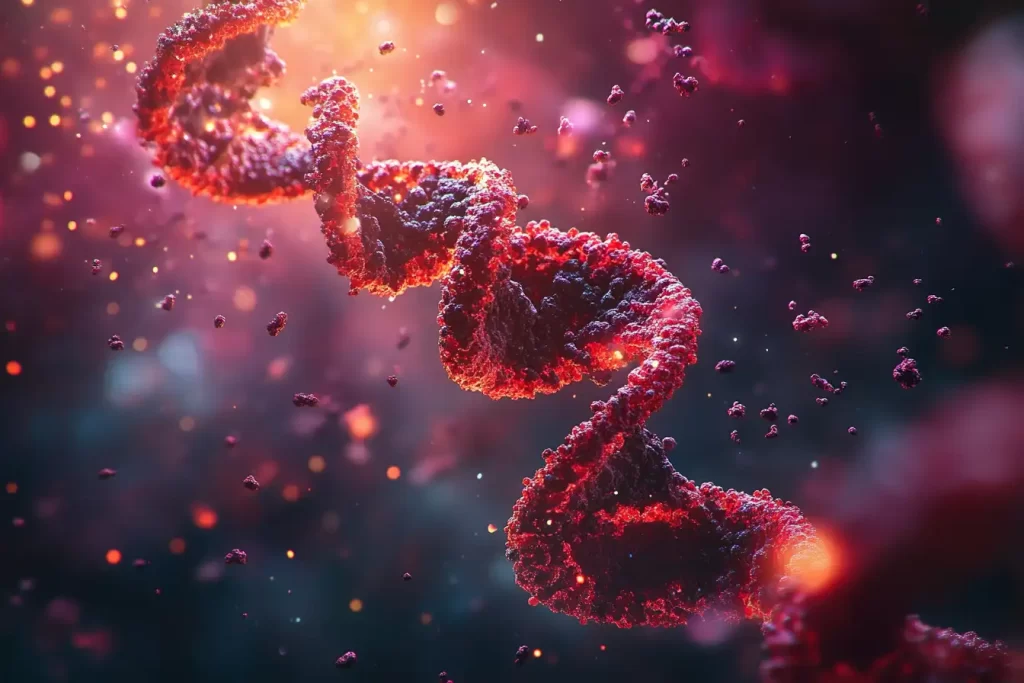Advances in pancreatic cancer research are revolutionizing the fight against one of the most challenging cancers to treat. Pancreatic cancer has historically been associated with low survival rates, primarily due to late diagnosis and limited treatment options. However, recent breakthroughs in early detection, innovative therapies, and cutting-edge technologies are offering new hope to patients and their families. In this article, we’ll explore the latest developments in pancreatic cancer research and how they are transforming the landscape of treatment, providing renewed optimism for those affected by this aggressive disease.
The Current State of Pancreatic Cancer Treatment
Pancreatic cancer has traditionally been managed through a combination of surgery, chemotherapy, and radiation therapy. While these treatments have saved lives, they come with significant limitations that hinder their effectiveness. One of the biggest challenges is that pancreatic cancer is often diagnosed at advanced stages, when the disease has already spread beyond the pancreas. At this point, surgery—often the best chance for a cure—may no longer be an option.
Adding to the complexity, pancreatic cancer cells are notoriously resistant to chemotherapy and radiation, making these treatments less effective than they are for other cancers. This resistance, combined with the aggressive nature of the disease, has historically resulted in poor survival rates.
These challenges highlight the urgent need for new approaches to treatment. Fortunately, the field of pancreatic cancer research is advancing rapidly. Scientists are gaining a deeper understanding of the biology of pancreatic cancer, uncovering new targets for therapy, and developing innovative strategies to overcome treatment resistance. These advancements are paving the way for more effective and personalized care.
Breakthroughs in Early Detection
One of the most promising areas of advances in pancreatic cancer research is early detection. Pancreatic cancer is often referred to as a “silent killer” because symptoms—such as jaundice, abdominal pain, and weight loss—typically don’t appear until the disease is in its later stages. By then, treatment options are limited, and the prognosis is often poor. However, groundbreaking technologies are beginning to change this narrative, offering hope for earlier diagnosis and better outcomes.
- Liquid Biopsies: This innovative approach analyzes circulating tumor DNA (ctDNA) in the blood, providing a non-invasive way to detect pancreatic cancer at its earliest stages. Liquid biopsies can identify genetic mutations and other changes associated with cancer, even before tumors are visible on imaging scans.
- Advanced Imaging: Cutting-edge imaging techniques, such as AI-enhanced CT scans and MRI, are revolutionizing how pancreatic cancer is detected. These technologies improve the accuracy of tumor localization and help distinguish between cancerous and non-cancerous lesions, enabling earlier and more precise diagnoses.
- Biomarker Research: Scientists are identifying specific proteins and genetic markers that signal the presence of pancreatic cancer long before symptoms arise. These biomarkers can be detected through blood tests or other simple procedures, offering a potential pathway for routine screening in high-risk individuals.
Early detection is critical because it significantly improves the chances of successful treatment and long-term survival. By catching pancreatic cancer at an earlier, more treatable stage, these advancements are giving patients a fighting chance against a disease that was once considered a death sentence.

Advances in Treatment Options
The field of pancreatic cancer treatment is undergoing a transformative shift, thanks to advances in pancreatic cancer research. Researchers are exploring a range of innovative therapies designed to improve outcomes and offer new hope to patients. These groundbreaking treatments are not only more effective but also more precise, targeting the disease with minimal harm to healthy tissues. Here are some of the most promising advancements:
1. Immunotherapy: Empowering the Immune System
Immunotherapy is revolutionizing cancer treatment by harnessing the body’s own immune system to fight the disease. For pancreatic cancer, immune checkpoint inhibitors like Keytruda (pembrolizumab) are showing remarkable potential. These drugs work by blocking proteins that prevent immune cells from attacking cancer cells, effectively “releasing the brakes” on the immune system.
While immunotherapy has historically been less effective for pancreatic cancer compared to other cancers, it is proving particularly beneficial for patients with specific genetic profiles, such as those with mismatch repair deficiency (MMR) or high microsatellite instability (MSI-H). Ongoing research aims to expand the use of immunotherapy to a broader range of patients, offering a powerful new weapon in the fight against this aggressive disease.
2. Targeted Therapy: Precision Medicine in Action
Targeted therapies represent a significant leap forward in treating pancreatic cancer. Unlike traditional chemotherapy, which attacks all rapidly dividing cells, targeted therapies focus on specific genetic mutations that drive cancer growth. For example, the KRAS mutation, found in about 90% of pancreatic cancers, has long been considered “undruggable.” However, recent breakthroughs have led to the development of drugs that can effectively target KRAS, with several now in clinical trials.
Additionally, therapies targeting BRCA1/2 mutations—commonly associated with breast and ovarian cancers—are showing promise for pancreatic cancer patients with these genetic alterations. By attacking the root cause of cancer at the molecular level, targeted therapies offer a more precise and less toxic approach to treatment.
3. Personalized Medicine: Tailoring Treatment to the Individual
Personalized medicine is transforming how pancreatic cancer is treated by focusing on the unique genetic makeup of each patient’s tumor. Through advanced genetic profiling, doctors can identify specific mutations, proteins, and biomarkers that drive cancer growth. This information allows them to create customized treatment plans that are more effective and have fewer side effects than traditional therapies.
For instance, a patient with a BRCA mutation might benefit from a PARP inhibitor, while another with a specific protein overexpression might respond better to a targeted therapy. This tailored approach not only improves outcomes but also enhances the patient’s quality of life by minimizing unnecessary treatments.
4. Nanotechnology: A New Frontier in Drug Delivery
Nanotechnology is opening up exciting possibilities for improving the effectiveness of chemotherapy. Nanoparticle-based drug delivery systems are designed to transport chemotherapy drugs directly to cancer cells, sparing healthy tissues and reducing side effects. These tiny particles can penetrate the dense stroma (protective barrier) surrounding pancreatic tumors, which has traditionally made drug delivery challenging.
By enhancing the precision of chemotherapy, nanotechnology is helping to overcome one of the biggest hurdles in pancreatic cancer treatment: drug resistance. Early studies show that nanoparticle-based therapies can shrink tumors more effectively and improve survival rates, making this a promising area of research.
Why These Advances Matter
These advances in pancreatic cancer treatment are not just incremental improvements—they represent a paradigm shift in how the disease is managed. By focusing on precision, personalization, and innovation, researchers are offering new hope to patients who once had limited options. While challenges remain, the progress being made is undeniable, and these breakthroughs are paving the way for a brighter future in pancreatic cancer care.
Promising Clinical Trials
Clinical trials are at the forefront of pancreatic cancer research, testing new drugs, therapies, and combinations of treatments. Some of the most exciting trials include:
- New Drug Combinations: Researchers are testing combinations of chemotherapy drugs with immunotherapy or targeted therapy to enhance their effectiveness.
- Gene Therapy: Experimental treatments are using gene-editing tools like CRISPR to modify cancer cells and make them more susceptible to treatment.
- Cancer Vaccines: Vaccines designed to stimulate the immune system to recognize and attack pancreatic cancer cells are showing promise in early trials.
Participation in clinical trials is not only a way for patients to access cutting-edge treatments but also a crucial step in advancing research.

The Role of Artificial Intelligence (AI) in Pancreatic Cancer Research
AI is revolutionizing cancer research by analyzing vast amounts of data to identify patterns and predict outcomes. In pancreatic cancer, AI is being used to:
- Analyze Imaging: AI algorithms can detect tumors in CT and MRI scans with greater accuracy than traditional methods.
- Predict Treatment Responses: Machine learning models help doctors predict how patients will respond to specific treatments, allowing for more personalized care.
- Accelerate Drug Discovery: AI is speeding up the process of identifying new drug candidates and optimizing existing therapies.
Lifestyle and Supportive Care Innovations
Beyond groundbreaking treatments, advances in pancreatic cancer research are also transforming the way patients manage the physical and emotional challenges of the disease. Supportive care innovations are playing a crucial role in improving quality of life, helping patients feel better, stronger, and more empowered throughout their journey. Here are some of the most impactful advancements in this area:
1. Nutritional Interventions: Fueling the Body for the Fight
Pancreatic cancer and its treatments can take a toll on the body, often leading to weight loss, malnutrition, and digestive issues. To address these challenges, researchers and dietitians are developing specialized nutritional plans tailored to the unique needs of pancreatic cancer patients.
These plans may include:
- High-calorie, high-protein diets to combat weight loss and maintain strength.
- Enzyme supplements to aid digestion and improve nutrient absorption.
- Anti-inflammatory foods to reduce treatment-related side effects and support overall health.
By focusing on proper nutrition, patients can better tolerate treatments, recover faster, and maintain their energy levels, ultimately improving their quality of life.
2. Pain Management: Relief and Comfort
Pain is a common and often debilitating symptom of pancreatic cancer, whether from the tumor itself or as a side effect of treatment. Fortunately, advances in pain management are providing patients with more effective and personalized relief options.
Innovative techniques include:
- Nerve blocks: Procedures that target and interrupt pain signals from specific nerves, offering long-lasting relief.
- Advanced medications: Newer painkillers and formulations that are more effective with fewer side effects.
- Non-pharmacological therapies: Techniques such as acupuncture, mindfulness, and physical therapy to complement traditional pain management strategies.
These approaches not only alleviate physical discomfort but also help patients maintain their independence and emotional well-being.

3. Psychological Support: Healing the Mind and Spirit
A pancreatic cancer diagnosis can be overwhelming, not just for patients but also for their families. Recognizing the importance of mental health, researchers and healthcare providers are developing comprehensive psychological support programs to address the emotional toll of the disease.
Key components of these programs include:
- Counseling and therapy: One-on-one or group sessions with licensed therapists to help patients process their emotions and develop coping strategies.
- Support groups: Safe spaces where patients and caregivers can share experiences, offer encouragement, and build a sense of community.
- Patient advocacy: Resources and guidance to help patients navigate the healthcare system, access financial assistance, and make informed decisions about their care.
By addressing the emotional and psychological aspects of cancer, these programs empower patients to face their diagnosis with resilience and hope.
The Bigger Picture: Holistic Care for Pancreatic Cancer Patients
These supportive care innovations are more than just add-ons to treatment—they are essential components of holistic cancer care. By addressing the physical, emotional, and psychological needs of patients, these advancements are helping individuals not only survive but thrive during and after treatment.
As research continues to evolve, the focus on patient-centered care is becoming increasingly prominent, ensuring that every aspect of a patient’s well-being is prioritized. This comprehensive approach is transforming the pancreatic cancer journey, offering patients and their families the support they need to face the disease with strength and dignity.
Stories of Hope: Patient Success Stories
Behind every statistic is a person with a story. Many patients have benefited from new treatments and clinical trials, experiencing improved quality of life and extended survival. For example, some patients with advanced pancreatic cancer have seen remarkable responses to immunotherapy, while others have benefited from targeted therapies tailored to their genetic profile. These stories remind us that progress is possible and that every breakthrough brings hope.
The Future of Pancreatic Cancer Research
The future of pancreatic cancer research is bright, with several exciting areas of exploration:
- CRISPR Gene Editing: This technology holds the potential to correct genetic mutations that drive cancer growth.
- Microbiome Research: Scientists are studying how gut bacteria influence cancer progression and treatment response.
- Combination Therapies: Researchers are testing treatments that target multiple pathways simultaneously to overcome resistance and improve outcomes.
Continued funding and awareness are essential to sustain this momentum and bring new treatments to patients faster.
Frequently Asked Questions (FAQs)
1. What are the early signs of pancreatic cancer?
Early signs of pancreatic cancer can be subtle and often mimic other conditions. Common symptoms include:
- Jaundice (yellowing of the skin and eyes).
- Unexplained weight loss.
- Abdominal or back pain.
- Loss of appetite.
- Fatigue and weakness.
If you experience these symptoms persistently, consult a healthcare provider for further evaluation.
2. Why is pancreatic cancer so hard to detect early?
Pancreatic cancer is difficult to detect early because:
- The pancreas is located deep in the abdomen, making tumors hard to spot during routine exams.
- Symptoms often don’t appear until the cancer has advanced or spread.
- There are no widely available screening tests for pancreatic cancer, unlike some other cancers.
3. What are the latest advancements in pancreatic cancer treatment?
Recent advancements include:
- Immunotherapy: Drugs like Keytruda that help the immune system attack cancer cells.
- Targeted Therapy: Treatments that focus on specific genetic mutations, such as KRAS or BRCA.
- Nanotechnology: Nanoparticles that deliver chemotherapy directly to cancer cells.
- AI and Machine Learning: Tools that improve early detection and personalize treatment plans.
4. Are there any new methods for early detection of pancreatic cancer?
Yes, researchers are developing innovative methods for early detection, such as:
- Liquid Biopsies: Blood tests that detect circulating tumor DNA.
- Advanced Imaging: AI-enhanced CT and MRI scans.
- Biomarker Research: Identifying proteins or genetic markers that signal pancreatic cancer.
5. What are clinical trials, and how can they help pancreatic cancer patients?
Clinical trials are research studies that test new treatments, drugs, or therapies. They offer patients access to cutting-edge treatments that are not yet widely available. Participating in clinical trials can also help advance research and improve future treatment options.
6. Can lifestyle changes reduce the risk of pancreatic cancer?
While there’s no guaranteed way to prevent pancreatic cancer, certain lifestyle changes can lower your risk:
- Avoid smoking.
- Maintain a healthy weight.
- Eat a balanced diet rich in fruits, vegetables, and whole grains.
- Limit alcohol consumption.
- Exercise regularly.
7. What is immunotherapy, and how does it work for pancreatic cancer?
Immunotherapy is a treatment that boosts the body’s immune system to fight cancer. For pancreatic cancer, immune checkpoint inhibitors like Keytruda are used to block proteins that prevent immune cells from attacking cancer cells. This approach is particularly effective for patients with specific genetic mutations.
8. What role does genetics play in pancreatic cancer?
Genetics can influence pancreatic cancer risk in two ways:
- Inherited Mutations: About 10% of pancreatic cancer cases are linked to inherited genetic mutations, such as BRCA1/2 or Lynch syndrome.
- Acquired Mutations: Most mutations occur during a person’s lifetime due to factors like smoking, diet, or environmental exposures.
9. What are the stages of pancreatic cancer, and how do they affect treatment?
Pancreatic cancer is staged using the TNM system:
- Stage 0-1: Cancer is confined to the pancreas.
- Stage 2-3: Cancer has spread to nearby lymph nodes or blood vessels.
- Stage 4: Cancer has metastasized to distant organs.
Treatment options depend on the stage, with surgery being more effective in early stages and systemic therapies (chemotherapy, immunotherapy) used for advanced stages.
10. Where can I find support for pancreatic cancer patients and families?
Support is available through:
- Pancreatic Cancer Action Network (PanCAN): Offers resources, support groups, and clinical trial information.
- Local Cancer Centers: Many hospitals have support programs for patients and caregivers.
- Online Communities: Forums and social media groups can provide emotional support and shared experiences.
Conclusion
Advances in pancreatic cancer research are offering new hope to patients and their families. From early detection technologies to innovative treatments and supportive care, the field is evolving rapidly. While challenges remain, the progress being made is undeniable. By staying informed, supporting research initiatives, and exploring new treatment options, patients can take an active role in their care and look to the future with hope.
If you or a loved one is facing pancreatic cancer, consult your healthcare provider about the latest advancements and clinical trials that may be available. Together, we can continue to push the boundaries of what’s possible in the fight against pancreatic cancer.


Wow, superb weblog format! How long have you ever been running a blog for? you made blogging glance easy. The full look of your site is wonderful, let alone the content material!
Wow, superb weblog format! How long have you ever been running a blog for? you made blogging glance easy. The full look of your site is wonderful, let alone the content material!
I am incessantly thought about this, appreciate it for posting.
Thank you so much! I really appreciate you taking the time to share your thoughts. It means a lot to know the post resonated with you. Pancreatic cancer research is evolving fast, and I’m glad this gave you something to think about. Stay hopeful—there’s real progress happening!
I am incessantly thought about this, appreciate it for posting.
Thank you so much! I really appreciate you taking the time to share your thoughts. It means a lot to know the post resonated with you. Pancreatic cancer research is evolving fast, and I’m glad this gave you something to think about. Stay hopeful—there’s real progress happening!
I would like to thank you for the efforts you’ve put in writing this site. I’m hoping the same high-grade blog post from you in the upcoming also. In fact your creative writing skills has inspired me to get my own web site now. Really the blogging is spreading its wings fast. Your write up is a great example of it.
I would like to thank you for the efforts you’ve put in writing this site. I’m hoping the same high-grade blog post from you in the upcoming also. In fact your creative writing skills has inspired me to get my own web site now. Really the blogging is spreading its wings fast. Your write up is a great example of it.